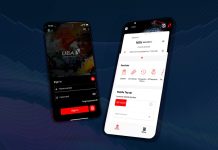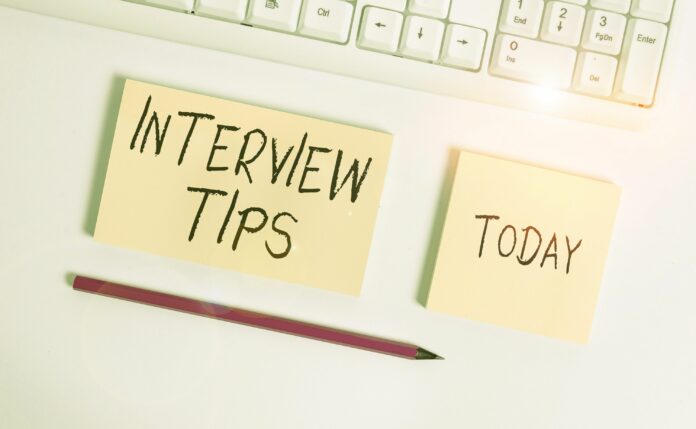Many people in Nigeria at the moment, yours truly included, are finding it more and more difficult to remain comfortable with the same income. Jobs have become more challenging to come by but I assure you, the resilient Nigerian spirit is creating more entrepreneurs who need hands on deck to build sustainable businesses.
Applying for an extra job or a better paying job is a good way to increase your income and wade the current economic waters. A side hustle is always available for the taking if the gods of opportunity and expertise are on your side. These days, organisations are also looking to hire competent people who can work remotely (from home), can you find a proper fit for your qualifications? Would you make a proper fit?
This is the gist – An interviewer is looking for the best fit for the company’s advertised position. Interviewers want to know who you are, why you are a good fit for the job and what you are talented at. In an ideal world, we would only apply to jobs which we are 100% qualified for. When you come across a job opportunity which you aren’t fully qualified for but you feel might be a good fit for you, it’s best to go in as prepared as possible to have a successful interview.
Here are 5 tips to ace any job interview:
Research the company you are applying to and position you are applying for: Being prepared starts with knowing every possible detail about the company you are applying to. Search online for the company’s website and social media pages, identify their values and make sure that you align with them – this will make it so much easier to adapt and answer any questions they may have for you. How long has the company been in operation? Who are the company managers? What is the organisation’s vision? Why do they want to fill this role? Do not spare any details in your research. In the hunt for a job, your greatest tool is information.
Study your CV: Do not submit a resume without going through it to remind yourself of your previous job roles and update it if necessary. Giving your interviewer a CV which you printed out from an email sent 2 years ago, without editing is a sure-fire way to open yourself up to flabbergasting questions. Make sure every word is spelt right, your skills are updated to fit what the company needs and the document is a true representation of your expertise.
3. Practice answers to common interview questions: interviewers do the most with their questions to ensure they eventually select the best candidates. There are a few common questions that most hiring managers ask in different forms so practicing the answers ahead of time will help you be very prepared for whatever may be thrown at you. Keep your answers concise, except you’re asked to expatiate. Here are 8 questions you could expect at a job interview and how you could answer them:
• How did you hear about this position? -Use this question to stand out and show your passion for the position and organization.
• Tell me about yourself – Give a short and convincing answer that sells your skills relevant to the position that shows exactly why you’re the right fit for the job.
• Why should we hire you? – Show your energy for the job and communicate how strongly you can deliver in that position.
• What can you bring to the company? – Read the job description properly and demonstrate that you understand the challenges the organisation faces which your skills can solve.
• What are your greatest strengths? – Think about what special qualities you have that make you the best fit for the job, explain them with examples of how you’ve applied them previously.
• Tell me about a challenge or conflict you’ve faced at work, and how you dealt with it – The interviewer is looking to understand your problem-solving skills. Share an experience that demonstrates what makes you special.
• Why are you leaving your current job? – No matter the circumstance, don’t speak negatively about your previous/current employer. Help the hiring manager see that the role you’re interviewing for is a better fit for you.
• What are your salary expectations? – To answer this question, figure out your salary requirements ahead of time and make sure you find out from the interviewer the full extent of the responsibilities for that position. In responding, give a salary range (eg 150,000-230,000) keep the bottom of your stated range toward the mid-to-high point of what you’re actually hoping for.
In answering these questions, keep in mind that the interviewer isn’t looking for crammed answers that you will recite back.
4. Look your best for the role: Creating a great first impression is crucial to standing out in the crowd of other job seekers. Wash and press your chosen outfit ahead of time and not the day of the interview. It doesn’t hurt to try the outfit on ahead of time, to make sure it fits and you look great. In addition to looking good, make sure to be kind and cordial to everyone you meet.
5. Show up at the right address on time: There’s no use making these preparations if you don’t show up at the right place. Verify the address sent to you by the interviewer and make sure to ask questions via email or phone for clarification. In the case of a virtual job interview, ensure that you log in about fifteen to thirty minutes before the interview time. This will give you enough time to check your internet connection, sign in to the interview link provided by the interviewer, and also test the sound and video to ensure that everything is in working order. Making a good first impression includes showing up on time, at most 10 minutes early, this shows that you value the organisation’s time, as well as yours.
Read Also: 6 Interesting Features About the New UBA Mobile App





























